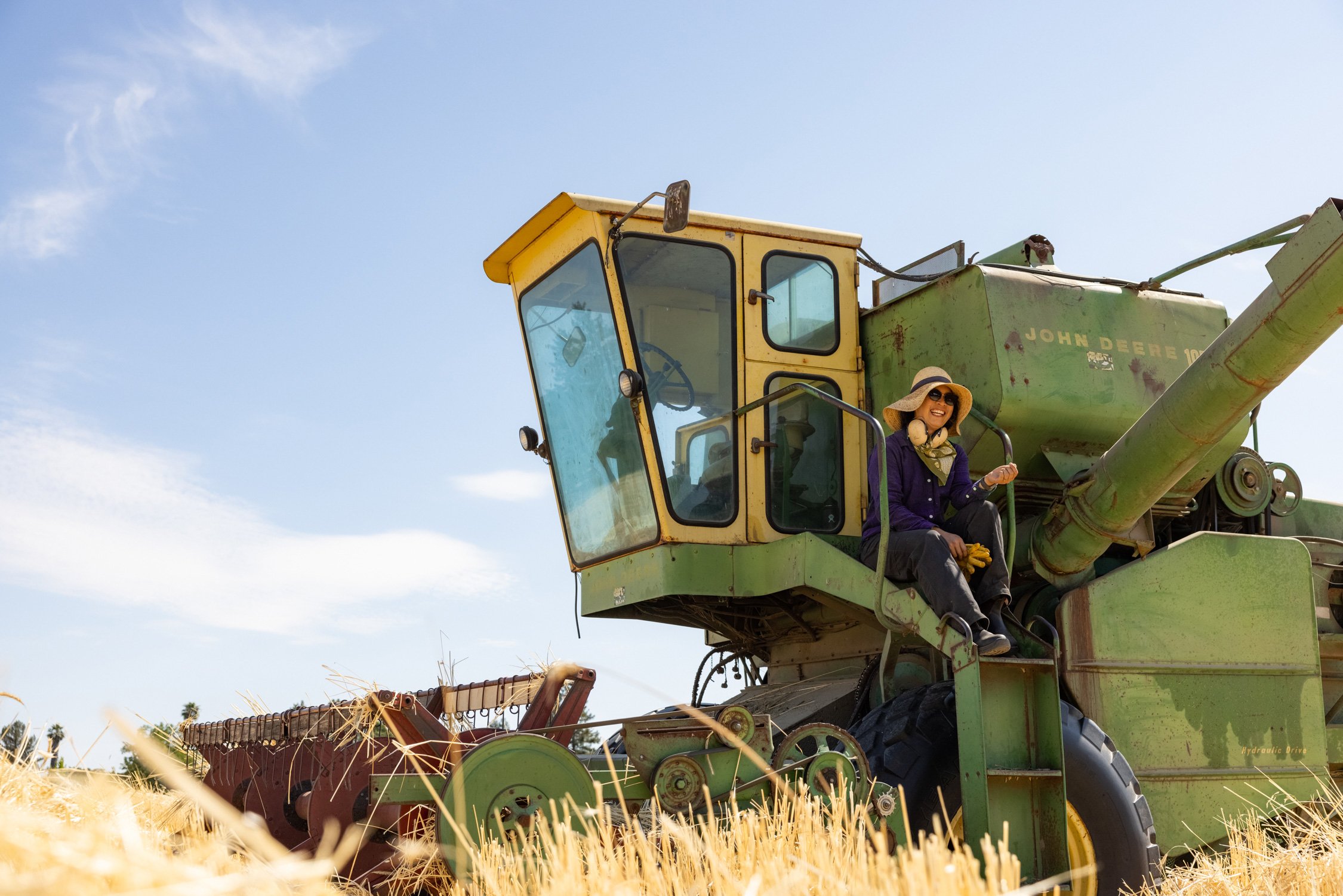
FARMING
Connecting People & Nature
Farming is an act of connecting people and nature. Yet, farming has been dehumanized and, instead, is driven by profit. The people who work with the land and eat the food are part of a cost-benefit calculation, and the land is forced into submission through tillage and toxic chemicals. The results have been widening social inequality and environmental destruction.
Rehumanizing farming requires us to grow food in ways that replenish the soil, water, and air while holistically supporting those who work and eat from the land. Humans and nature aren’t separate. We are all part of a system, and it is our responsibility to take care of each other and the earth.
Farmer Mai is part of a global movement of agroecological farming, which integrates the science of sustainable agriculture with social justice. The farming practices encompass what the US considers organic or regenerative, while also embracing traditional, place-based knowledge that is healthful for ecosystems and those who live in them.
Below are a few key practices on the farm that are enabling the capture of atmospheric carbon, increasing groundwater storage, and furthering our climate adaptation.
Unlike commodity grain, Farmer Mai owns the grain throughout its lifecycle until it reaches your hands. This gives you transparency and accountability for all the steps along the way.

“Agroecology is a way of life and the language of Nature…It is based on principles that, while they may be similar, [can be] practiced in many different ways, with each sector contributing their own colors of their local reality and culture, while always respecting Mother Earth and our common, shared values.”
— DECLARATION OF THE INTERNATIONAL FORUM FOR AGROECOLOGY, NYÉLÉNI, MALI, 2015
Heirloom Seeds to Face Food Insecurity
Farmer Mai’s seeds make it possible to mitigate climate change, eat nutritious whole foods, and adapt to climate change while increasing our food sovereignty with delicious, culturally-significant food. They are also non-Patent Variety Protected seed such that they can be saved and shared with other farmers, and they are delightfully flavorful.
10%
Farmer Mai’s selection of diverse grains from heirloom seed uses only 10% of the water that conventional wheat requires
5-6x
They capture 5-6 times more atmospheric carbon than conventional wheat
All 3
They retain a natural balance between their 3 essential parts: bran, germ, and endosperm — which together support healthy digestion.
See the Grain page for varieties that are currently available and those being trialed and increased.
Farming Practices
-
Farmer Mai stewards seeds that have been inherited by farmers for centuries. They are non-proprietary or not Plant Variety Protected varieties, and thus can be freely saved and shared by farmers.
-
The soil is disturbed when necessary to seed the ground or incorporate organic matter. I avoid deep ripping and encourage soil-building methods.
-
Intentionally planting different crop species in sequence or together increases soil health by fostering a wide range of nutrients and microorganisms that also benefits our health. Sheep are introduced at specific times to provide nutrients as well as manage undesired plants. Soil nutrients, then, are produced on-site rather than being imported and are managed in amounts that are absorbed instead of extruded by the land.
-
Rotating animals and plants, as well as intercropping, reduces weed pressure without relying on synthetic and toxic pesticides and herbicides. Undesired plants still arise, and their seeds are removed through multiple rounds of mechanical seed cleaning.
-
The straw, which is mostly carbon, that remains in the fields after harvest are baled and made available to farmers and land stewards who use the fibrous matter to build water-managing swails, animal bedding, and natural buildings. Carbon is returned to the earth in ways that help retain more water and reduce resource extraction from other locales.
-
Rainfall is the only source of water for Farmer Mai’s crops, and the grain varieties have been selected and adapted to growing well with the little rain we receive. Dry farming in California requires delicate timing and intentional cultivation with high risk. The benefits are worth it, though, because doing so preserves our precious water in our parched state, while still being able produce quality staple crops.
-
Crops are naturally dried in the field during California’s hot summers. No chemicals are applied to hasten drying.
-
Farmer Mai employs local, skilled farmers during the harvest season, and compensation is based on more than a minimum wage but the area’s living wage. Off-farm, grain goes to California cleaners and millers in order to build a regional grain economy, and then to values-aligned retailers in our state.

Let’s Work Together
Together, we'll lead the way toward the world we want. I would love to collaborate, partner, problem-solve, or provide assistance. Let's make an impact, starting now.









